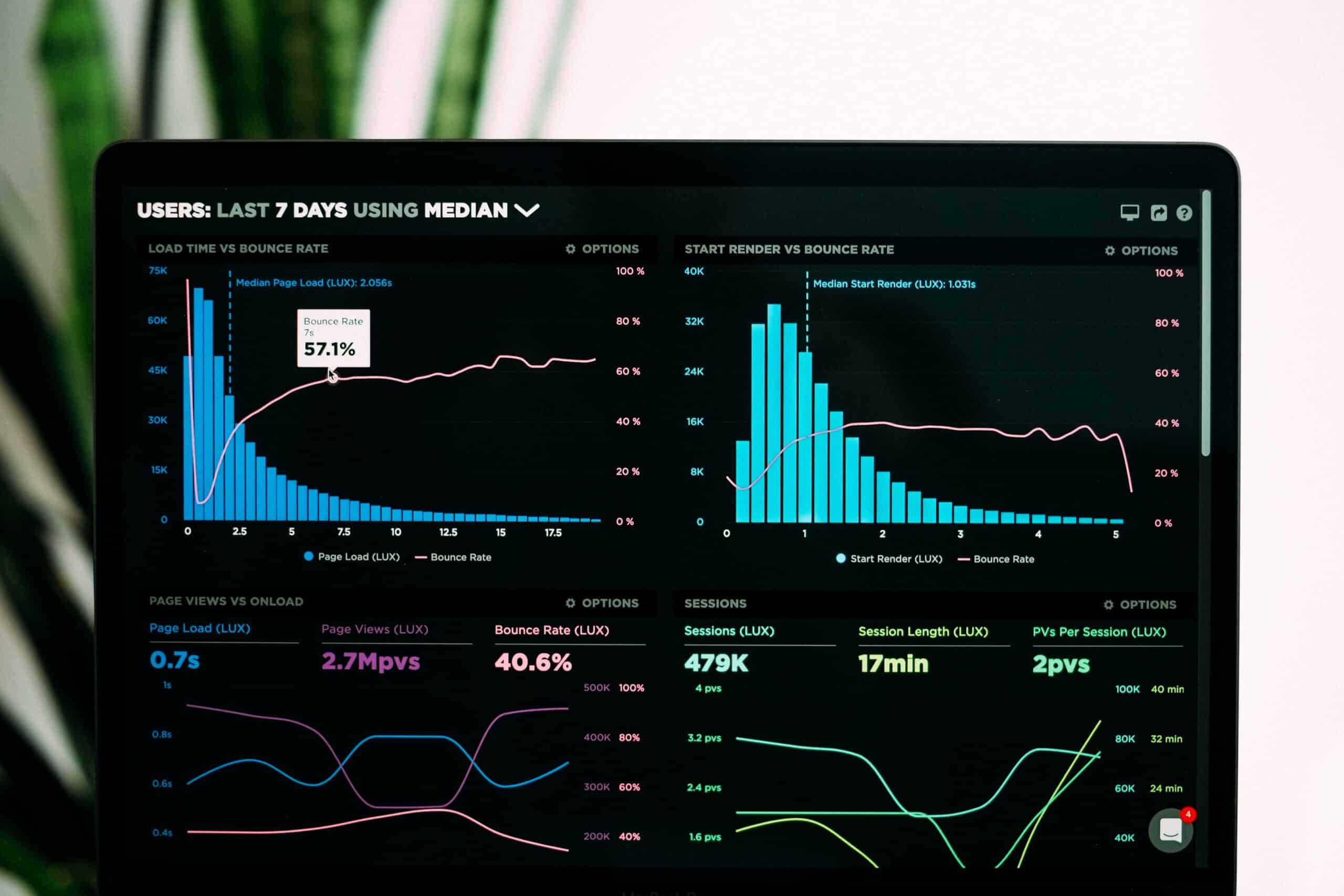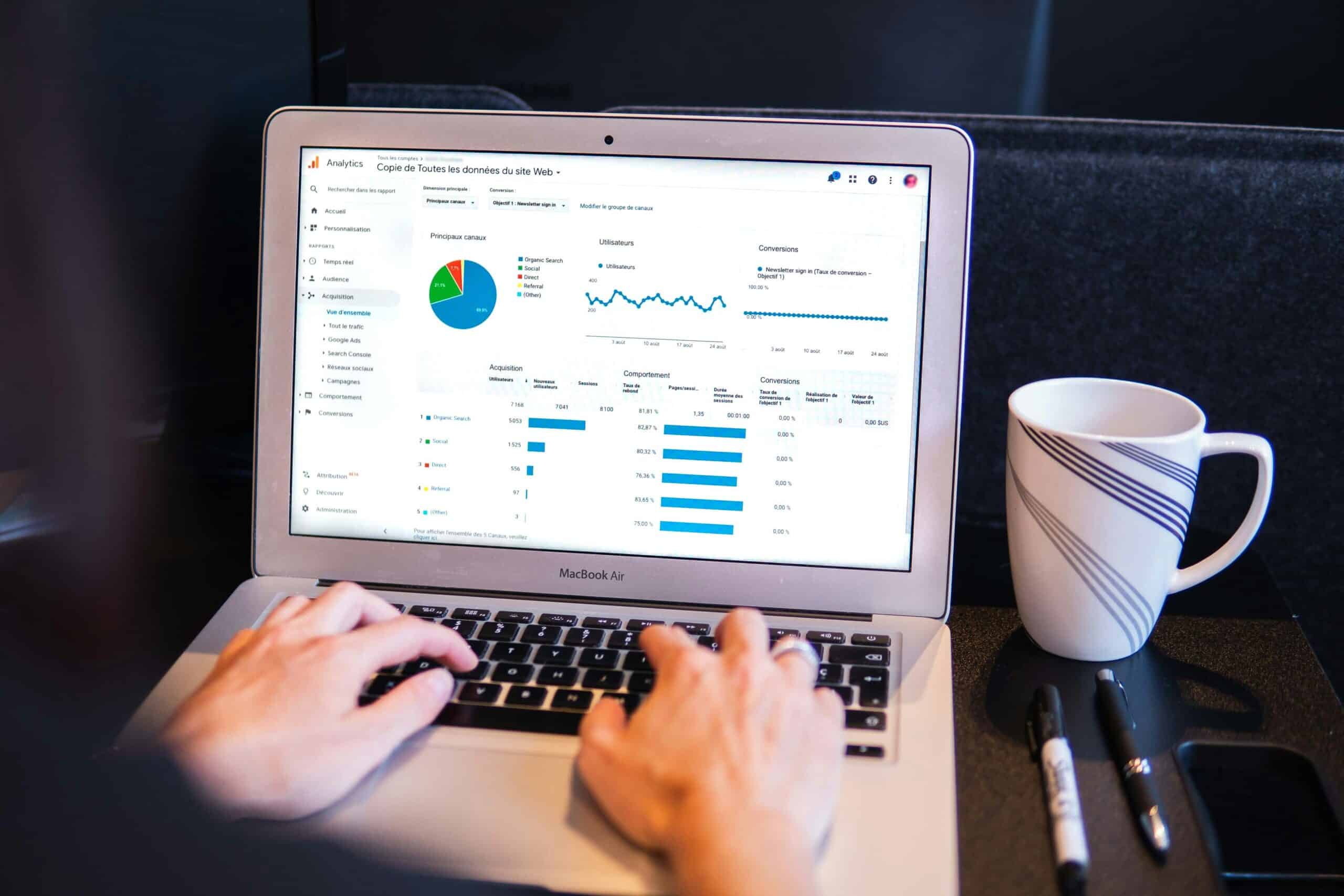Event analytics utilization can help you measure and evaluate your event performance and identify areas for improvement and growth. In other words, data and analytics can help you make informed decisions that enhance your event outcomes and impact.
But how can you unlock the potential of event analytics for data-driven decisions? What are the best practices and tools for collecting, analyzing, and leveraging event data? How can you use event data to create more engaging experiences for your audience? And how can you use event data to achieve your goals and objectives?
The above are some of the questions that this article will answer. Explore the benefits and challenges of event analytics as we share some tips and examples on using event data to plan and execute successful events.
The Power of Analytics in Event Planning
Events are powerful tools for engaging and connecting with your audience, whether they are customers, partners, donors, or members. However, planning and executing successful events requires more than just intuition and creativity. It also requires data and analytics.
Data and analytics can help you understand your audience’s behavior, preferences, and feedback, and use this information to optimize your event strategy, design, and marketing.
In the ever-evolving landscape of event planning, analytics has become a game-changer. Event analytics offers a wealth of insights that go beyond surface-level logistics. It is a powerhouse of data-driven intelligence, enabling planners to make informed decisions, optimize strategies, and enhance the overall event experience.
Understanding Event Analytics: Unveiling the Power of Data
At its core, event analytics involves collecting, evaluating, and interpreting data related to various aspects of an event. From attendee engagement to marketing effectiveness, analytics provides a comprehensive view of an event’s performance. In a world where information is king, leveraging analytics is a necessity for event planners striving to stay ahead in a competitive landscape.
Analytics is a guiding compass, offering valuable insights into attendee preferences, marketing effectiveness, and overall event success. With this information, event planners can make informed decisions that drive success and create experiences that resonate with attendees.
Enhancing Attendee Experience: Understanding Behavior
In the dynamic landscape of event planning, integrating analytics becomes an effective strategy for achieving efficiency and maximizing impact.
Analytics is a powerful tool, allowing event planners to discern patterns, derive insights, and make informed decisions that go beyond intuition. By delving into data-driven assessments, planners can identify the most effective marketing channels that yield the highest returns on investment.
Event analytics will result in a targeted approach to budgeting, ensuring that each dollar spent contributes significantly to the event’s success. Whether it’s social media advertising, email campaigns, or other promotional avenues, analytics enables precision in resource allocation, allowing planners to focus on channels that resonate most with their target audience.
Effective Resource Management
Analytics becomes a dynamic ally in optimizing resource deployment. Through data analysis, planners can discern peak hours, high-traffic areas, and critical points of engagement within the event venue.
The information gained from analyzing event data can help craft effective event management, whether assisting attendees, managing queues, or enhancing the overall guest experience. It streamlines operational efficiency and ensures that every event team member contributes meaningfully to the event’s success.
Moreover, analytics transcends the role of a mere resource management tool. The activity evolves into a proactive partner in decision-making. By identifying areas of high impact, event planners can make agile adjustments for the event.
Real-time analytics empowers planners to respond swiftly to changing dynamics, ensuring a dynamic and adaptive event experience that aligns seamlessly with attendee preferences and behaviors. The strategic integration of analytics is a transformative approach that empowers event planners to navigate the complexities of resource management with acumen. It allows for a harmonious synchronization of financial investments and human efforts, ensuring that every resource is utilized to its maximum potential.
Tracking Attendee Interactions
One key advantage of event analytics is its ability to track attendee interactions. Event planners gain insights into attendee behavior by analyzing data from registration systems, mobile apps, and engagement platforms. Which sessions are most popular? What areas of the venue are frequented the most? Analytics answers these questions, enabling planners to tailor future events to match attendee preferences.
Event planners can personalize the event experience using actionable insights gained from data analytics. From targeted communications based on interests to personalized recommendations for sessions and activities, analytics allows customization that elevates the attendee experience. Attendees feel valued and engaged, fostering a positive perception of the event.
Measuring Marketing Effectiveness: from Clicks to Conversions
Event management is multifaceted, spanning social media, email campaigns, and online advertising. Measuring marketing effectiveness is a strategic imperative. From the initial click to the final client conversion, understanding and optimizing this journey is critical for businesses. It’s how event planners can make the most of their marketing efforts.
Event analytics provides a comprehensive view of digital marketing performance. By analyzing click-through rates, conversion rates, and engagement metrics, event planners gain actionable insights to refine their marketing strategy.
1. Clicks as the Starting Point
Clicks serve as the initial touchpoint between a potential customer and a brand. Whether through social media ads, search engine results, or email campaigns, each click represents a moment of interest. However, the sheer volume of clicks alone does not paint the complete picture of marketing effectiveness. The quality of these clicks sets the stage for the journey towards conversion.
2. Understanding Click-Through Rates (CTR)
Click-through rates are a fundamental metric for assessing the effectiveness of marketing campaigns. CTRs provide insights about users who clicked on an ad or link compared to the total number of impressions. A high CTR suggests that the ad resonated with the audience, prompting them to take action. However, going beyond CTR and exploring what happens post-click is crucial.
3. Engagement Metrics
Engagement metrics such as time spent on a webpage, interaction with content, or the number of pages viewed offer a deeper understanding of user behavior. Tracking these analytics provides valuable insights into the level of interest generated by the initial click. For instance, if a user spends an extended period exploring a website post-click, it indicates a higher level of engagement.
4. Bridging the Gap with Conversion Tracking
The ultimate goal of your event marketing is to convert potential customers into actual customers. Conversion tracking allows businesses to trace the journey from the initial click to a desired action—whether making a purchase, filling out a form, or subscribing to a service. Implementing robust conversion tracking mechanisms is pivotal for understanding the tangible impact of marketing efforts.
5. Attribution Models
Attribution models play a crucial role in assigning value to various touchpoints along the customer journey. Whether it’s the first interaction, the last click before conversion, or a series of touchpoints, attribution models help marketers understand which channels and messages contribute most significantly to conversions. The insight from these metrics helps make effective marketing strategies and resource allocation decisions.
6. Attribution Modeling for ROI Analysis
Understanding the event return on investment (ROI) of marketing efforts is critical. Analytics employs attribution modeling to assign value to various touchpoints in the attendee journey, from initial awareness to registration and beyond. This granular analysis enables event planners to identify the most impactful marketing channels and allocate a budget where it generates the highest ROI.
6. Measuring Return on Investment (ROI)
While clicks and conversions provide valuable data, measuring ROI ties these metrics back to the bottom line. ROI calculation involves comparing the revenue generated from marketing efforts to the total cost of those efforts. It provides a clear picture of the financial impact of marketing campaigns and informs decisions on budget allocation for optimal results.
Event Analytics Utilization and Techniques for Event Success
Leveraging analytics tools are indispensable to navigating the complexity of measuring marketing effectiveness. Platforms like Google Analytics, HubSpot, and Adobe Analytics offer many features for tracking clicks, analyzing user behavior, and measuring conversions. These tools provide actionable insights that empower marketers to refine strategies based on real-time data.
A/B testing, or split testing, is particularly effective for optimizing marketing effectiveness. By comparing two distinct versions of a webpage, ad, or email with slight variations, marketers can identify which elements resonate most with their audience. This iterative process of testing and continuous refining ensures continuous improvement in marketing strategies.
RFID and Beacon Technology
Radio-frequency identification (RFID) and beacon technology revolutionize how event planners gather data. RFID badges attendees wear can track movement throughout the venue, providing detailed insights into traffic patterns and session attendance. Beacon technology offers proximity-based engagement, delivering personalized messages or promotions based on an attendee’s location within the event space.
Artificial Intelligence (AI) and Predictive Analytics
Integrating artificial intelligence (AI) and predictive analytics takes event analytics to new heights. AI algorithms analyze vast datasets to identify patterns and trends, enabling planners to predict attendee behavior and preferences. Strategic foresight allows for proactive decision-making and the creation of highly targeted and successful events.
Agile Event Adaptation: The Power of Immediate Feedback
Real-time analytics enables agile event adaptation by providing a pulse on attendee sentiment and engagement. Planners can identify trends, capitalize on successful elements, and address challenges as they arise, ensuring that the event remains dynamic and responsive to attendees’ expectations.
Analytics provides real-time insights through instant feedback loops. Attendee interactions with event content, surveys, and social media are analyzed in real time, allowing event planners to make on-the-fly adjustments.
Whether addressing issues with session content or optimizing the event flow, real-time insights empower planners to respond swiftly to attendee needs. Analytics allows event planners to review the event’s performance comprehensively. The activity helps planners to know what works well. They can also gain insights into what can be improved for more effective outcomes.
By reflecting on the data, planners can distill key learnings that inform future events, creating a continuous improvement cycle.
Event Analytics Utilization for Iterative Event Planning
Analytics promotes an iterative approach to event planning. Each event serves as a learning opportunity, with data-driven insights guiding the refinement of strategies and tactics. From marketing campaigns to session content and logistics, analytics facilitates an iterative process that ensures each subsequent event is more refined and successful than the last.
To unlock the potential of event analytics for data-driven decisions, you need to define your event goals and key performance indicators (KPIs). Additionally, it is essential to carry out the following activities for effective event analytics.
- Collect relevant and reliable event data from various sources and channels
- Analyze your event data using appropriate methods and tools
- Leverage your event data insights to optimize your event planning and execution
- Communicate and share your event data results and recommendations with your stakeholders and audience
Embracing iterative event planning fueled by data analytics represents a paradigm shift in the event management landscape. This approach transcends traditional event planning by incorporating continuous feedback loops, allowing organizers to adapt and refine strategies in real time.
Leveraging data analytics, event planners can analyze attendee behavior, preferences, and engagement patterns, extracting invaluable insights that inform dynamic decision-making. From fine-tuning marketing strategies to optimizing resource allocation and enhancing the overall attendee experience, the iterative process ensures that each event iteration builds upon the lessons learned from the previous event.
Case Studies: Success Stories in Analytics-Driven Event Planning
Tech Summit’s Data-Infused Success
A technology summit leveraging analytics tools achieved unprecedented success. By analyzing attendee data, the summit organizers identified specific tech areas of interest, leading to curated sessions that resonated with the audience. Real-time feedback loops allowed instant adjustments, ensuring a dynamic and engaging event experience that left attendees eager for future editions.
Fashion Show’s Runway to Analytics Excellence
A high-profile fashion show used analytics to refine its marketing strategy. By analyzing social media engagement and click-through rates from various channels, the organizers pinpointed the most effective platforms for promoting the event. This data-driven approach increased attendance and elevated the event’s online visibility and brand presence.
FAQs About Using Event Analytics for Data-Driven Decisions
1. Q: What is event analytics, and why is it essential for event planning?
Event analytics involves collecting and analyzing data related to various aspects of an event. It is crucial for event planning as it provides actionable insights into attendee behavior, marketing effectiveness, and overall event success. These data-driven insights empower planners to make informed decisions for future events.
2. Q: How can event analytics enhance the attendee experience?
Event analytics can enhance the attendee experience by tracking interactions, preferences, and feedback. By understanding attendee behavior, event planners can personalize experiences, optimize event flow, and ensure that future events cater to the specific needs and interests of the audience.
3. Q: What tools and technologies are available for event analytics?
Various tools and technologies are available for event analytics. These include RFID and beacon technology for tracking attendee movements, artificial intelligence (AI) for predictive analytics, and mobile apps for real-time engagement tracking. Leveraging these technologies provides comprehensive insights into different facets of event performance.
4. Q: How can event planners effectively use analytics for marketing strategies?
Analytics can optimize marketing strategies by analyzing digital marketing performance, tracking conversion rates, and employing attribution modeling. Planners can identify the most effective channels, refine messaging, and allocate a budget where it generates the highest return on investment (ROI), ensuring a more successful marketing approach.
5. Q: What role does real-time analytics play in event planning?
Real-time analytics is crucial for event planning as it provides immediate feedback on attendee interactions and sentiment. Data analytics allows planners to make on-the-fly adjustments, address issues promptly, and ensure a dynamic and engaging event experience. Real-time insights enable agile event adaptation for a more responsive and successful event.
Summing Up: Event Analytics Utilization
Event analytics collects, analyzes, and uses event data to make data-driven decisions that improve your event outcomes and impact. Analytics can help you:
- Understand your audience’s behavior, preferences, and feedback
- Optimize your event strategy, design, and marketing
- Measure and evaluate your event performance
- Identify areas for improvement and growth
- Achieve your event goals and objectives
Event data and analytics is a continuous cycle of learning and improvement. By using event data to make data-driven decisions, you can create more engaging and authentically memorable experiences for your audience and ensure the success and impact of your events.
This year, elevate your corporate events planning skills by attending The Event Planner Expo in NYC. Take your events to a level that goes beyond expectations. Success begins with a strategic partnership – let us catalyze your event triumphs. Get tickets for the premier conference for event planners today!










